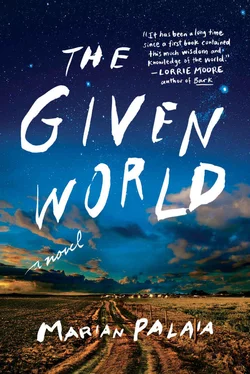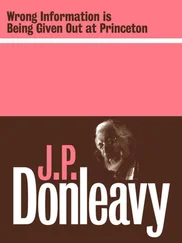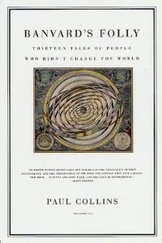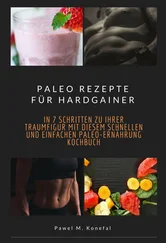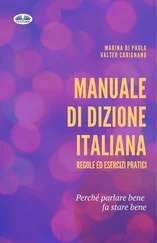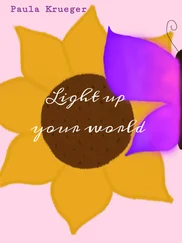After a few games, Luc looks at his watch. “Time,” he says.
“Time for what?”
He doesn’t answer, but goes to the storeroom to fetch a jug of snake wine. While I lean against the wall and watch, he pours it around the room, over the pool table, the bar stools, and the bar.
“Are we going to burn it down?”
“ Oui, ” he says, as matter-of-fact as that kiss, and empties the last of the snake wine, and the snake, onto the floor.
“I wonder what kind of snake that is.” Despite how stoned I am, I know how stoned I must sound.
“A dead one,” he says. “Let’s do eet.”
Snake wine is basically grain alcohol wrapped around a serpent, and it goes up like gasoline. Luckily, Luc has made sure that we are all but out the door when he lights it. We take off for the river, and smoke begins to pour from the windows. Flames climb from the inside out and up to the roof. We find a small, uninhabited boat tied up to a bigger boat, and huddle together in the bow, breathing hard, watching Clive’s bar disintegrate. The front of the big boat is carved into the shape of a dragon and we are in its shadow. No one comes to put out the fire. A few sleepy cyclos pedal up and sit, backlit by the flames, in a row at the curb. They look like they are watching a movie.
I am reminded, inexplicably, of the Aussie, who will be coming back any day, and I wonder if I will even tell him I know about the girlfriend and the baby, or just go on until they get here as if nothing has changed, seeking refuge in a room that could be anywhere, in any country, at any time. Or maybe I will do the more rational thing and take up with Luc, and we will burn stuff down. I think about Frank and how careless I was, how I never looked back until now, and still don’t know why I didn’t, or why, now, I have.
I try to remember what Clive looked like, how he moved and the way he spoke. Every time he starts to slip away, I bring back that one quick dance, that pirouette, and begin again. I am glad the bar is gone. All those knickknacks.
When the sun comes up, we walk along the quay, stop at a phở stand, and sit down on low plastic stools under a mesh awning. There is a small, dirty-blond dog asleep next to the table. He has many small scars around his muzzle, and his ears and stubby tail twitch away the flies. The soup is good and hot; we top it off with basil leaves and chili sauce, stir it all together. My lips burn as I eat, but I can’t drink the water, so I just let them.
Luc asks if I have ever been to Củ Chi. I say no, not yet. He says how can that be? He says he has a motorcycle. A real one. Russian. Not one of those little 50cc jobs. I nod. When we finish eating, Luc pays the bill and kisses me on both cheeks.
“Saturday?” he says. I do not say anything. I do not say no. He waits a minute and says, “Ten o’clock. Le matin .” He goes. I finish my soup. The dog watches.
I teach two classes at the business school, and after they are over ride my bicycle to the zoo. Two of the street kids I know are selling postcards and “shwing” gum to dumbfounded visitors they have helped cross the wide boulevard, where the onrush of bicycles, motorbikes, and the occasional car or lorry never pauses or breaks for even a second. The kids acknowledge me with almost imperceptible nods, and they don’t try to sell me anything. In one corner of the zoo, I find a large black bear in a very small cage. He is not moving and his paws are covering his eyes.
I go home at four to shower, change, and eat, arrive at the bar at six, get a beer from Tho, retire to the window with Phượng. The sun sets as it does here, without prelude, and the sky goes from light to dark as if a switch has been thrown. Phượng leans her back into one corner of the window frame, her fingers laced across her middle and her head turned to gaze outside. Her expression tells me nothing, but I have seen her and Ian in deep conversation, laughing sometimes, sometimes not laughing. They are going to keep the baby, I think. Together . And I am jealous of what they have.
“Will miss Mister Clive,” she says.
“ Đó là sự thật .” It’s true.
She looks at me, one eyebrow raised. “Been study?”
“Some,” I say.
“Phượng think a lot,” she says. “Good on ya.” She smiles, makes a small fist, and socks me lightly on the shoulder. “Me too.”
I say, “You are such a knucklehead.”
“Next week lesson,” she says. “Have to go now.”
“I-Feel-Like-I’m-Fixin’-to-Die Rag” is playing in the background. The line “Be the first one on your block to have your boy come home in a box” is the one that always makes me flinch. I picture my mother (Dad in a shadow behind her) looking out at the snowy buttes, tracing patterns in the frost on the insides of the windows, trying to imagine a place where there is no winter, where it is always hot, and when the rains come after weeks of threats and dry thunder and lightning in the west, people pour into the streets and squares to soak it up in the most literal sense — to express their gratitude for the one absolute requirement of a country like this one, a place where at one time, not all that long ago, what most of them probably wanted more than anything was to raise their families, farm their land, and be left the fuck alone.
I sit on the windowsill and watch Phượng walk away. Her áo dài is blue tonight. ( Of a color intermediate between green and violet, as of the sky or sea on a sunny day. The boy went blue, and I panicked. ) I know it is a special one she wears when she has a date. I expect Ian will show up to get her pretty soon, in his tattered linen sport jacket, and they will go to the roof of the Rex for dinner, stand at the edge of the terrace and watch the city: the young couples on their motor scooters, riding around and around the circle in front of the opera house on Nguyễn Huệ, slowly, hypnotically; the cyclos parked on the side streets, smoking, patiently waiting for passengers — someone, anyone who is prepared, however reluctantly and in whatever condition, to go home.
12. Somewhere in the Real World
The ad says, “Sunny Potrero Hill flat. Share with two ‘males.’ Straight-friendly. Must like cat.” The only cats I’ve ever really known were the barn kind, wild and prone to grasshoppering at any movement that could possibly be considered untoward. I assume the cat in the ad will be different, will allow petting and behind-the-ear scratches, like Cash would, if he were still around.
I like the idea of an animal, of getting to know something gradually, little by little, with no obligation to converse. I’ve come home tongue-tied is why. From Saigon. After the equivalent, in time, of a tour of duty there, and then some. I’m shell-shocked, though not in the usual sense. It is no longer Vietnam but America, now, that shocks, with its shiny veneer, its heaps of shrink-wrapped paraphernalia. Besides which, the war has been over for a long time.
At least that war has. But there have been others since, ongoing and everywhere, and maybe they are partially to blame for the fact that something feeling quite like armed conflict still carries on in my head. Armed but deceptively quiet, as if all the combatants are required to use silencers, and the stealth missiles to remain stealthy clear to impact.
I didn’t want to come back. I had grown to love being one of the missing, living in a place where no one could find me, no one could just stop by or call me up. I was so far away from my memories, I could almost pretend they were someone else’s. I had learned that distance was a force field — so very useful — and my mind was so busy trying to get me through the city and the days, I could forget for long stretches of time I’d ever had another life.
Читать дальше
